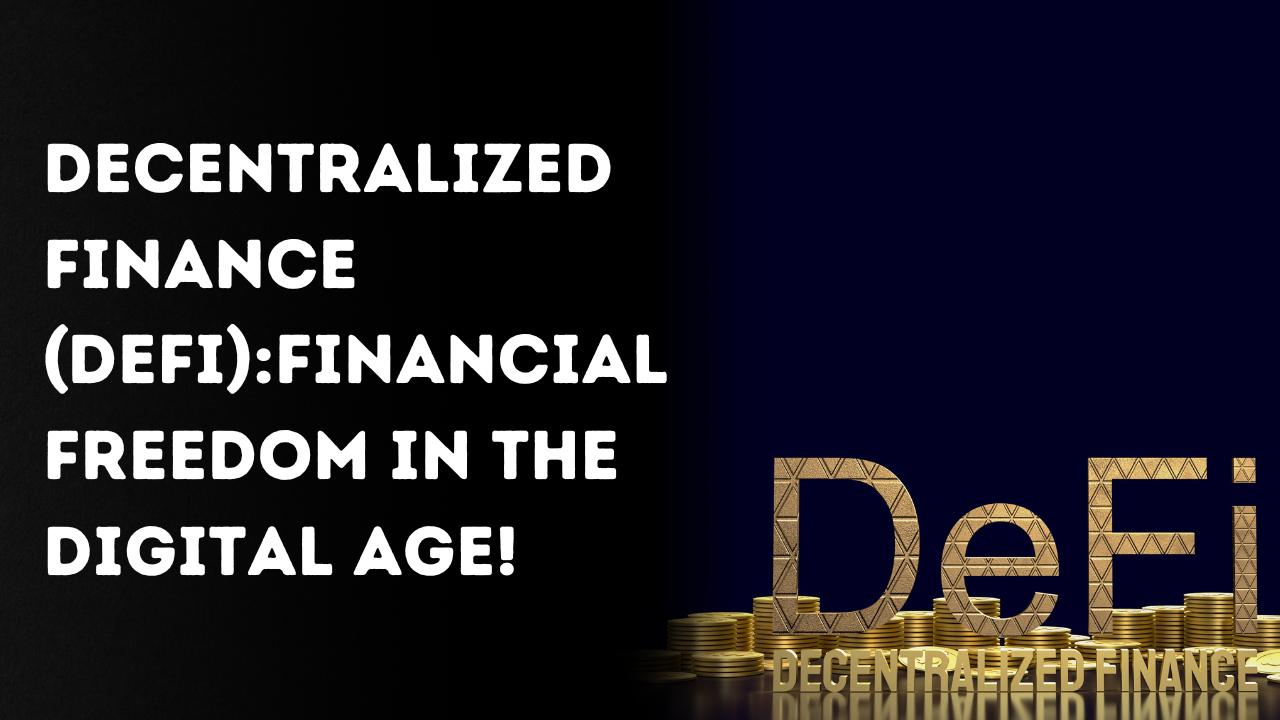Understanding Decentralized Finance (DeFi) and Its Impact on the Financial Landscape
17 Apr 2024 3 mins Personal Finance

Decentralized finance (DeFi) is revolutionizing traditional financial systems through innovative technology. Let’s delve into what DeFi is and how it's reshaping the way we think about finance.
What Is Decentralized Finance (DeFi)? Decentralized finance (DeFi) leverages secure distributed ledgers, akin to those powering cryptocurrencies, to create a financial system free from centralized control. Unlike traditional finance regulated by entities like the Federal Reserve and SEC in the U.S., DeFi empowers individuals with direct peer-to-peer transactions, challenging the existing financial framework.
Key Points to Note:
- DeFi removes intermediaries, offering direct financial transactions.
- It utilizes cryptocurrencies, blockchain technology, and specialized software.
- Despite its potential, DeFi is vulnerable to security breaches due to inadequate testing and programming.
Understanding How DeFi Works: DeFi operates through peer-to-peer networks, enabled by advanced security protocols, connectivity, and software. By eliminating intermediaries like banks, DeFi transactions occur directly between individuals, facilitated by blockchain technology.
Blockchain: Blockchain serves as the foundation of DeFi, providing a secure and immutable ledger for recording transactions. Transactions are grouped into blocks, encrypted, and linked together, ensuring transparency and security.
Applications: DeFi applications simplify user interaction with the blockchain, offering interfaces for various financial transactions. From loans to trading, these applications automate processes, enhancing accessibility and usability.
Goals of Decentralized Finance:
DeFi aims to democratize financial services, enabling:
- Accessibility to anyone with an internet connection.
- Negotiable interest rates and low fees.
- Enhanced security and transparency.
- Autonomy from centralized financial institutions.
Use Cases of DeFi:
DeFi offers diverse opportunities, including:
- Decentralized exchanges like Uniswap and PancakeSwap.
- Liquidity provision for enhanced trading.
- Peer-to-peer lending and yield farming.
- Gambling and prediction markets.
- Non-fungible tokens (NFTs) trading.
Getting Involved in DeFi:
Embarking on your DeFi journey involves:
- Researching activities aligned with your interests.
- Choosing a compatible wallet and exchange.
- Initiating transactions and exploring available services.
Concerns and Considerations:
DeFi’s unregulated nature raises concerns about:
- Security vulnerabilities and potential hacks.
- Regulatory challenges and jurisdictional issues.
- Industry hype and speculative investments.
The Role of Bitcoin and Total Value Locked (TVL):
Bitcoin, though not synonymous with DeFi, plays a vital role within its ecosystem. TVL represents the total worth of cryptocurrencies engaged in DeFi activities, reflecting the sector's growth and adoption.
Bottom Line:
Decentralized finance presents a transformative paradigm shift in the financial landscape. While its potential is immense, challenges lie ahead, including regulatory hurdles and technological vulnerabilities. Nevertheless, DeFi continues to evolve, offering new opportunities and reshaping the way we perceive and engage with finance.
SEO Considerations: Ensure optimal keyword integration, meta descriptions, and relevant headers to enhance search engine visibility. Focus on user engagement and readability, incorporating structured data markup for improved indexing and ranking. Additionally, leverage authoritative backlinks and strategic content distribution across relevant platforms to amplify reach and domain authority.